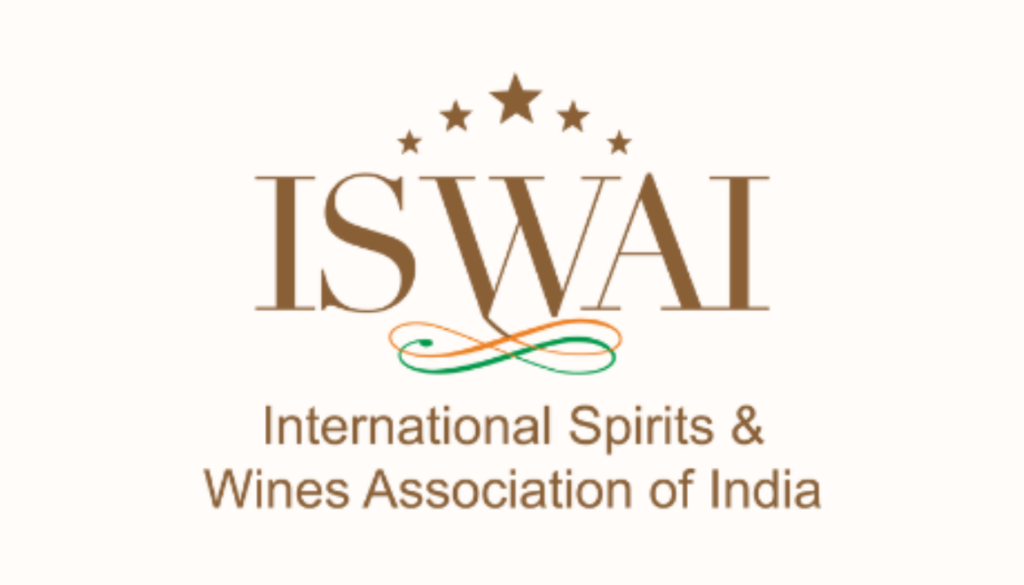“WOMAN OF WISDOM”Advocating responsible consumption, fostering innovation, and navigating regulatory challenges in the Alcobev industry
In Conversation with Nita Kapoor, CEO, The International Spirits and Wines Association of India (ISWAI) Intoduction Nita Kapoor, a seasoned leader, has an impressive history of championing industry interests, spearheading sustainability programs, and driving revenue growth. In

In Conversation with Nita Kapoor, CEO, The International Spirits and Wines Association of India (ISWAI)
Intoduction
Nita Kapoor, a seasoned leader, has an impressive history of championing industry interests, spearheading sustainability programs, and driving revenue growth. In her role as the CEO of The International Spirits and Wines Association of India (ISWAI), she leads dynamic efforts to represent international alcoholic beverage companies in India. Established in 2004, ISWAI proactively advocates for industry interests, influences government policies, promotes best practices, and encourages responsible consumption of alcoholic beverages. ISWAI aims to shape a positive regulatory environment while emphasizing the industry’s beneficial societal impacts.
Nita Kapoor’s illustrious career showcases her steadfast dedication to business excellence and sustainable development, positioning her as a respected figure in industry advocacy and corporate leadership.

Renowned for her dedication to business excellence, sustainable development, and leadership in industry advocacy, she embodies beauty, intelligence, and experience.

You have such an extensive experience – we would love to hear about your journey. Could you share one memorable moment that has stayed with you?
Reflecting on my journey, one particularly memorable moment stands out vividly. It was the development and launch the first ever Alcobev Industry report, which aimed to meticulously document the economic value of our industry. The process of crafting this report was a journey in itself, involving exhaustive analysis, data gathering, and synthesis of insights. We delved deep into market trends, consumer behaviour, and economic impact, striving to provide a comprehensive perspective on the Alcobev sector. It was a labour of love, fuelled by a passion for understanding and driving positive change within the industry.
What excites you the most about this industry?
This industry is dynamic- the nature of its challenges and opportunities. There’s never a dull day! As an advocacy team, we’re constantly out there, building the industry’s reputation and addressing its challenges head-on. Whether it’s advocating for responsible consumption, driving innovation, or navigating regulatory landscapes, every day presents new avenues to make a meaningful impact and shape the future of the Alcobev industry.
In the present context, how do you think the Alcobev industry impacts the Food & Beverage experience?
According to our report on the Economic Value of the Alcobev Industry, our sector contributes 14% of the F&B sector sales value, approximately INR 21,000 crore. This highlights the substantial economic footprint and influence of Alcobev products in enhancing the overall F&B landscape, offering consumers a diverse array of choices and experiences.
Could you highlight any recent trends that you feel are shaping the wine industry? We are particularly keen to understand the significant changes and insights in consumer behaviour within the wine sector, from both consumer and industry perspectives.
Wine Industry (IWSR 2022) currently stands at 3.27 million cases and is expected to grow at 6.6% in the next 5 years. We foresee growth largely coming from Metro cities and as the sector continues to develop consumer preferences the growth will also include tier 1 cities and states with a tourism focus.
There is a dynamic interplay between evolving consumer behaviour and innovations. For instance, there is a growing preference for premiumization with consumers seeking unique experiences too. From industry perspective, there is a serious focus on sustainability and ethical practices are gaining traction that eventually influencing consumer choices too.
What, in your view, is the best location for cultivating high-quality grapes and why?
Whilst Karnataka and Maharashtra have the largest market share, I have learnt that our fruit belt that includes the mountain terroir has potential.
With respect to the wine market – your thoughts on the performance of the Indian market on a global scale?
The Indian wine market, while showing promising growth, still has significant ground to cover to compete on a global scale. Challenges such as regulatory barriers and limited consumer awareness, must be addressed to realize its full potential.
What are the key challenges the industry is facing in India?
There are several challenges like regulations that impede growth and innovation including complicated taxing and licencing procedures. Obstacles can arise from cultural attitudes on alcohol drinking, which influence marketing and distribution plans. The potential of the industry is further hampered by infrastructure constraints, such as insufficient cold chain logistics. These difficulties are made worse by limited technology, a fragmented consumer market, an expensive supply chain, poor grape yield and productivity.
What is the key to success in the industry? What advice do you have for individuals aspiring to enter the field?
In the alcohol beverage market, creativity, flexibility, and a thorough grasp of customer preferences are essential for success. Embracing creativity in product development, staying agile to navigate regulatory landscapes, and prioritizing building strong relationships with stakeholders are important.
My advice to anyone who wants to work in this business is to learn as much as you can about it, connect with people who have been there before, and don’t give up easily. Success can be achieved by a combination of passion, tenacity, and ongoing education.

What technological advancements are influencing the Alco-Bev industry?
Technological advancements play a significant role in transforming the way alcoholic beverages are produced, distributed, and consumed. For instance, smart sensors enable manufacturers to monitor the quality and temperature during the brewing and fermentation process. Personalized and on-demand experiences are becoming increasingly popular, with companies leveraging technology to create unique and interactive experiences like virtual tastings.
We have numerous innovations recently in terms of taste and processing and the most exciting has been Read to Drink/ Ready to Serve cocktails and that includes Single Malts too.
- Whisky makers are looking at Quantum Cask Maturation, AR Tasting, Robotic Distillery Assistants, Sustainable Water Purification to name a few
- Gin – advanced distillation equipment and innovative production methods have allowed to create interesting gin flavours
What exciting developments are currently unfolding in the Indian wine scene?
Bilateral agreements should see an infusion of investments and much required technology to advance the wines sector in the domestic and export market.
Ensuring streamlined duties and policies are essential for establishing a sustainable Indian alcoholic beverage business. Please provide insights on the significant role of the alcohol industry in the national economy.
At USD 52.4 billion our industry contributes to 2% of the nominal GDP of India! Fifth largest market globally and ranked No. 2 globally in Spirits, contributes nearly 3 Lakh crores in taxes to state govt., supports 13 Lakh farms in India and engages 65 Lakh farmers, contributes 14% to F&B value and nearly 30% share of wallet in the tourism industry.
Being a part of #treasuresfromtrash, what are your thoughts on the future of sustainability?
I am excited about the future of sustainability – the movement symbolizes a shift towards conscious and responsible behaviours towards consumption and resources.
I think it is and should be, a priority for the industry to adopt sustainable practices like water saving and recycling that not only offer economic prosperity but are environmentally sound. We must, across industries, find a balance for the future.
—-
 English
English French
French German
German Italian
Italian




